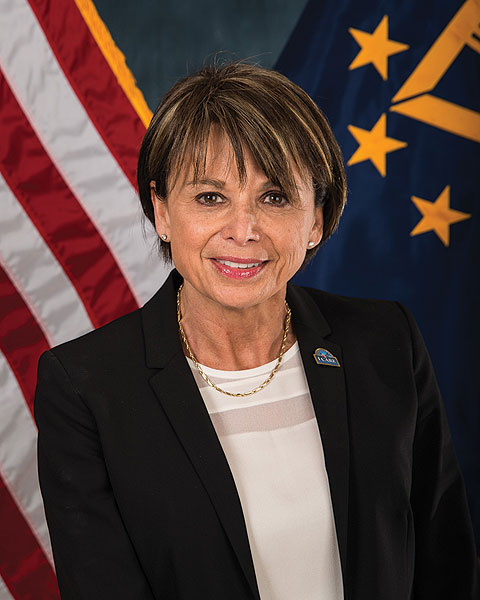 |
||||||||||||
|
July/August 2016 A New Sheriff in Town: BY RICHARD CURREY
Not long after Mitchell filed her complaint, a Phoenix VA program analyst wondered why administrators were claiming success in reducing wait times for patient appointments. In a July 2013 email exchange with other employees, he wrote that the electronic appointment system was being manipulated to create a false impression that veterans were being served. “That is unethical and a disservice to our veterans,” he wrote. Shortly thereafter, Dr. Sam Foote, another doctor at the Phoenix VA, filed a complaint with the VA Office of Inspector General, alleging that “successes” in reducing wait times were fictional and, in fact, were manipulations of data—in other words, Dr. Foote believed that veterans were dying while awaiting appointments for medical care. He took his claims to Arizona Republic investigative reporter Dennis Wagner. Wagner’s subsequent investigation confirmed the allegations and launched what would become an evolving story covered by hundreds of other news outlets for nearly three years. Wagner went on to win the 2014 George Polk Award for Military Reporting for his work on the Phoenix VA wait-time scandal.
The VA OIG released an interim report that confirmed the whistleblowers’ claims, and on June 9, 2014, the VA delivered a new bombshell: VA Medical Centers throughout the nation had delayed medical appointment scheduling and then misrepresented those delays, affecting more than 57,000 veterans. Robert McDonald, a former Army officer and retired corporate CEO, succeeded Eric Shinseki as the Secretary of Veterans Affairs with a charge to remedy the broken VAMC system. Soon after his confirmation, McDonald received a letter from the Arizona congressional delegation asking him to move quickly to name a permanent director for the Phoenix VAMC. On November 20, 2015, Deborah Amdur was appointed to the position. Amdur had launched her VA career more than twenty years earlier as a social work intern at the St. Louis VAMC. Rising through the ranks, she ultimately served as Special Assistant to the Secretary of Veterans Affairs in Washington, D.C., and as Assistant Director of the Washington, D.C., VAMC. Amdur was director at the White River Junction, Vermont, VAMC when she was asked to take the reins in Phoenix. “The Phoenix VA Health Care System is clearly a facility that has been through significant challenges in the past couple of years,” Amdur told The VVA Veteran. “But let me share two observations I made very early in my time here. First, there are many dedicated staff members in Phoenix—including some 40 percent who are veterans themselves—all of whom have continued to work hard to meet the needs of veterans despite the major stresses this organization has faced. They have shown great resilience and commitment. “My second observation is the exceptional level of support for veterans and veteran services across the state of Arizona. We have very active and engaged VSOs—and VVA is one of them—and many dynamic veteran leaders. Any request for community engagement is met swiftly and positively. The Phoenix veterans community has been a great source of support for me.” In this context of an institution ready for change and a community of veterans’ advocates offering their support for that change, Amdur described her three-pronged strategy to turn Phoenix around: regaining the trust of veterans and the public, rapidly and dynamically improving access to care, and stabilizing and enhancing working conditions at the Phoenix VAMC. “First and primary is regaining the trust and confidence of veterans and the public,” Amdur said. That means “transparency in all that we do: open communications with key stakeholders, seeking input and feedback, and being responsive when issues are raised. It also means setting a high bar for customer service and laying out clear expectations for staff across the facility.”
When it comes to improving access to care, the Phoenix VA is experiencing unprecedented service demands due in part to a rarely noted phenomenon: Americans—including veterans—have poured into the Southwest during the last few years. In 2014 alone, Arizona gained nearly 100,000 new citizens. The net effect is increased numbers of vets seeking medical care in Phoenix. “We brought on approximately five hundred new staff over the past two years to address growth and improve access to care for our growing population of veterans,” Amdur said. “And we have been fortunate to receive funding for multiple construction projects.” There is also a new fast-track ER clinic. “Our ER is one of the busiest in any VA in the country,” Amdur said. “We often see well over a hundred patients per day.” With as many as 50 percent of vets coming to the ER with non-emergency problems, Amdur noted that “our fast-track clinic has helped drive down waiting times and channel care into more appropriate settings.” And the nagging concerns about Phoenix’s negative workplace culture and old history of antagonisms and service lapses? “When I arrived in December 2015, it was readily apparent that a culture of fear pervaded the organization,” Amdur said. Staff members were afraid to raise issues and concerns to leadership for a variety of reasons, making it more of a challenge to identify critical areas that needed attention. “We’re working hard to eliminate that,” Amdur said. “I encourage and celebrate employees who bring issues forward. We’ve instituted a new feedback system that’s open to employees as well as veterans that enables us to receive suggestions and comments.” Amdur and her leadership team now make regular rounds to work locations throughout the organization, engaging staff to hear about problems and celebrate successes. Amdur feels the practice has helped in creating a more positive work culture. “It’s important that our leadership team is visible, accessible, and that we openly share our commitment to the veterans we serve as well as to the welfare of more than three thousand staff members,” Amdur said. “We are working hard to re-engage staff in a more positive environment and break down barriers that impede our ability to perform our mission.”
Amdur’s time in Phoenix has not been without its critics, and she has weathered frequent attacks in the press and from veterans. Veteran leaders in Arizona, though, have called on critics to show patience and let Deborah Amdur continue to rebuild the Phoenix VA from top to bottom. On April 23, 2016, the Arizona Republic published an open letter signed by the leadership of fourteen Arizona VSOs, including VVA Arizona State Council President Gene Crego. “It has been approximately two years since reports first surfaced about the breakdown in service at the Phoenix VA Medical Center,” the letter said. “Due to systemic issues and a failure of management, veterans were going months without care. Since that time, herculean efforts have gone into turning things around. We are encouraged that the Phoenix VA is on its way to regaining the public’s confidence and trust. “Deborah Amdur recently took the helm and in the short time she has been here we have witnessed her true sincerity in helping the veteran community. It takes a motivated individual to step into the eye of the storm and commit to working toward positive changes. Sadly, she has had to endure negative attacks from day one. “We want to set the record straight. Since Amdur assumed leadership, she has made it clear that accurate, transparent patient scheduling and patient records are priority number one. In stark contrast to the way things were handled in the past, Amdur has encouraged staff to come forward and share any concerns with leadership, and has rewarded staff for identifying opportunities for improvement. “We are proud to publicly state our support for Deborah Amdur and to encourage other leaders in our community to do the same. We look forward to continued progress and restored confidence in Phoenix VA under her leadership.” “That letter was heartfelt and inspiring to me,” Amdur said. “I deeply appreciate the support I have received from all our VSOs and their members. We would have much more of a challenge identifying issues and serving veterans if it weren’t for the valuable assistance all our VSOs provide.” Amdur also expressed gratitude to the VVA Vermont State Council “who reached out to their VVA counterparts here in Phoenix before I even arrived. It made for a warm welcome and much appreciated support. “VSOs play an integral role advocating for veterans and in helping us improve what we do,” Amdur said. “We could not do what we do without the support of our VSOs. It is vital that we continue in ongoing dialogue and collaboration.”
|
||||||||||||
|
|
||||||||||||
|
||||||||||||
8719 Colesville Road, Suite 100, Silver Spring. MD 20910 | www.vva.org | contact us |
||||||||||||





















 In 2012 a physician working in the emergency room at the Phoenix VA Medical Center told the Center director that the hospital’s ER was overwhelmed, understaffed, lacked effective triage procedures, and imperiled quality patient care. This was only one of many attempts that Dr. Katherine Mitchell had made to inform the leadership at the Phoenix VAMC that veterans’ care was suffering due to an array of inefficiencies and service failures—and it was only one of many times she was disciplined, sidelined, and stonewalled for voicing her concerns.
In 2012 a physician working in the emergency room at the Phoenix VA Medical Center told the Center director that the hospital’s ER was overwhelmed, understaffed, lacked effective triage procedures, and imperiled quality patient care. This was only one of many attempts that Dr. Katherine Mitchell had made to inform the leadership at the Phoenix VAMC that veterans’ care was suffering due to an array of inefficiencies and service failures—and it was only one of many times she was disciplined, sidelined, and stonewalled for voicing her concerns.